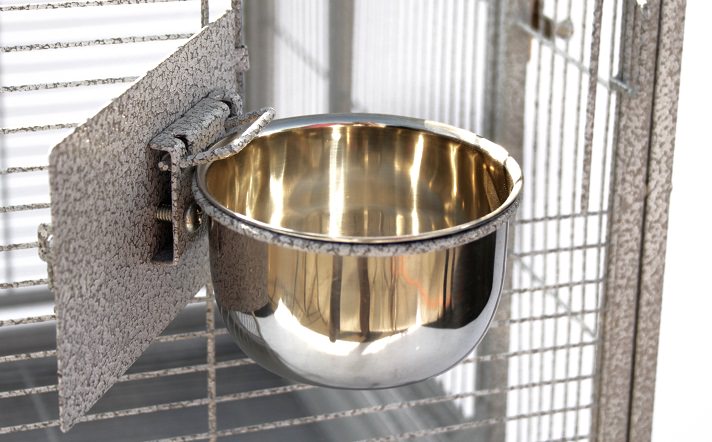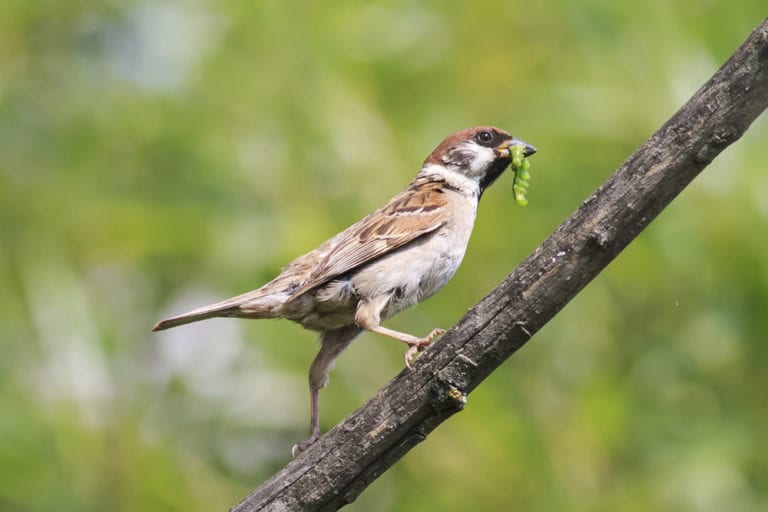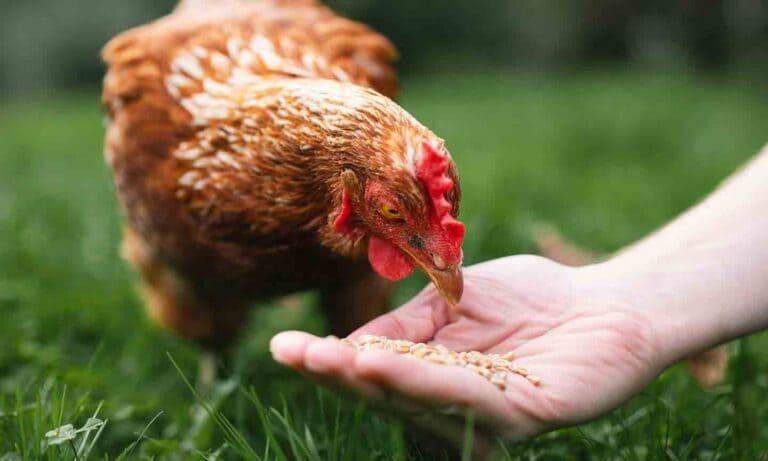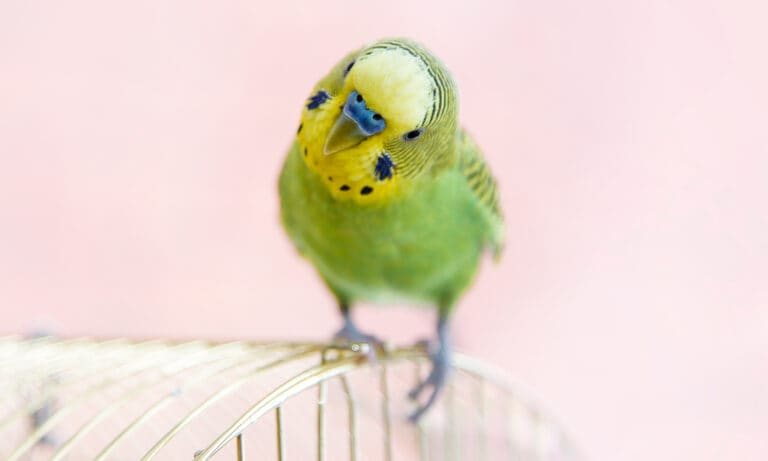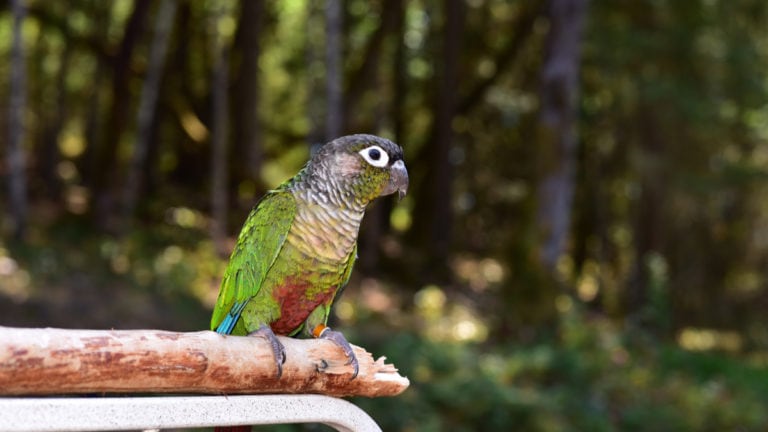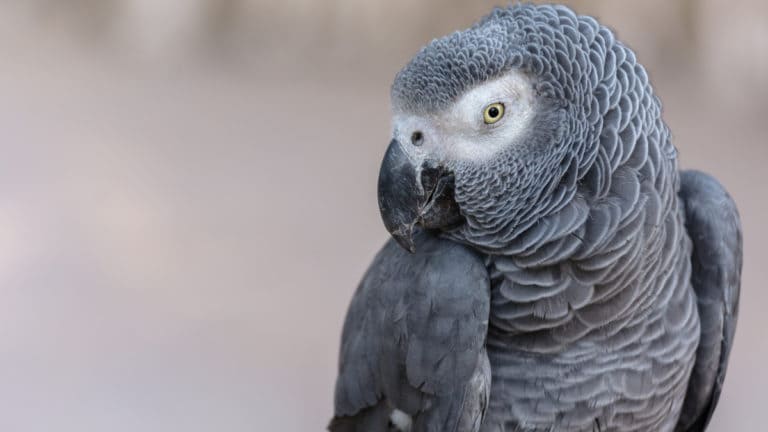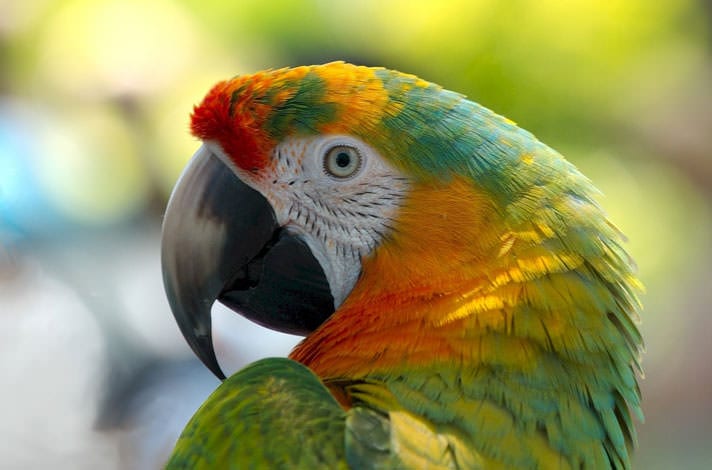You’ve probably heard the expression, “You are what you eat.”
But perhaps just as important is the quality of water that is consumed. Water—clean, fresh and in ample supplies—is essential to nearly every process of your pet bird’s body.
“Water is probably the most important overlooked nutrient of any animal,” says Dr. Julie Burge, DVM, a private practice veterinarian in Missouri. “A bird can live a lot longer without food than it can without water.”
Approximately 75 percent of a bird’s body is made up of water. Each day, an adult bird needs to drink enough water to make up 5 percent of its body weight to replace the water lost from waste removal, respiration and evaporation.
Water performs a number of important functions. “The normal physiological processes that go on need water to occur,” explains North Carolina veterinarian Dr. Gregory Burkett, DVM. “The insides of cells are water, so if a bird doesn’t drink enough water, then the water that’s inside of those cells leaches out because the body needs to use it, and then the cells dry up like raisins and die.”
Water is also needed to flush out the parrot’s body, remove excess minerals and other wastes, to transport nutrients throughout the body and to help regulate body temperature. Without enough water, the blood volume will drop and the kidneys, liver and heart will not function as efficiently as they should.
Clean Water Is Important
But for pet birds in particular, often the bigger issue is not so much being provided with enough water as it is making sure they have clean water. (Most pet owners make sure there’s water in the cage.) An owner may get busy and forget to change the bird’s water dishes in a couple days. Meanwhile the bird may have defecated in the water, taken a bath in it, shredded newspaper from the bottom of the cage and put that in the water, rinsed its beak in the bowl after eating, dunked pellets or crackers in the water to soften them, or perhaps a fly flew into the water dish and is now floating on top.
Any of the above-mentioned “debris” in a pet bird’s water dish can create an ideal breeding ground for bacteria. “Bacteria love to grow in filthy water,” Dr. Burge says. “Most birds will defecate or dunk food in their water dish. These organic materials feed the bacteria and cause them to grow even faster.”
Bacterial growth is measured in doubling time—the time it takes for bacteria to double in number. According to Dr. Burkett, doubling time for many bacteria is two to three hours. In practical terms, this means if you put a clean water dish in the cage at 8 a.m. and at 9 a.m. the bird takes a drink, any food material that was on its beak—any bacteria—gets in the water. “By noon, whatever amount of bacteria that’s in there has doubled, and that doubles again and doubles again so that by 5 p.m. there’s enough bacteria in there to make any bird sick,” Dr. Burkett says.
Probably the most common water-borne bacteria is Pseudomonas. Other types of bacteria, such as E.coli, Klebsiella, Giardia and Salmonella, can also grow in water. Any of these can cause diarrhea or other digestive tract disturbances, as well as more serious infections.
Whether or not a bird becomes ill from ingesting bacteria depends on the quantity that is taken in, notes Dr. Brian Speer, DVM, an avian veterinarian in California and co-author of Birds for Dummies (IDG Books, 1999). “We and our birds consume bacteria that could cause disease every day,” he says. “But the reason it doesn’t make us sick is we’re taking in very limited numbers—we’re only drinking five or 10 organisms. But if we drink contaminated water, we may be drinking five billion organisms, and that probably would be too much for our immune system to handle.”
For instance, a normal amount of Salmonella exposure might be 10 organisms a day—something your parrot’s body can handle. But if Salmonella is proliferating in the water your pet bird drinks, it might take in 10 million organisms in one swig of water, and it would probably come down with a Salmonella infection as a result.
Oftentimes, it’s pretty obvious that your bird’s water dish is dirty: You can see the crud floating on top of the water. But even without any obvious debris, the water may very well be contaminated. The way you can tell, Dr. Burge says, is “if you rub your finger on the inside of the water dish and it feels slimy, that means bacteria is growing in there. Or, if you see discolored areas in a plastic dish, that’s probably bacteria as well.”
When providing water to your birds, you have two main options: bowls and crocks or water bottles. “Each of those sources of water — bottles, crocks, bowls, etc.—can and do work fine,” Dr. Speer says. “Each also has some degree of inherent risks. Inattention on either side can lead to catastrophe.”
Kinds Of Water
In most situations, ordinary tap water is fine. “I don’t think every bird needs to have bottled water imported from France in his cage,” says Florida veterinarian Dr. Gregory Harrison, DVM. “If you feel comfortable drinking the water, then it’s probably OK for your bird.”
In most urban areas, the water goes through a treatment facility where bacteria, excess minerals, etc., are filtered out. That water will probably be safe for both you and your birds. On the other hand, if you live way out in the country and are drinking well water, sometimes that’s a problem.
Well water often has an excessive amount of minerals from the ground, and the water may be pretty hard as a result. “Hard water can be potentially harmful, because there can be a lot of iron and other hard minerals in it that can, over a long period of time, affect kidney function,” Dr. Burkett says.
The lead in hard water is especially a concern with lories, mynahs and toucans, according to Dr. Harrison. “Iron causes hemochromatosis (iron storage disease) in lories, toucans, mynahs. These birds need to be fed a low-iron diet—and they should be provided with water that’s low in iron too,” he says.
If you believe that your water is unacceptable, you might want to buy de-ionized water, filtered water or bottled water for your bird. Or, you could install an in-line water filter system, or have a filter put on your faucet to filter out excess minerals and bacteria.
One other issue relating to your bird’s water has to do with adding vitamin supplements to the water. Vitamin supplements in the water may provide necessary nutrients in the water container for bacterial growth to occur.
“Bacteria need the same nutrients that birds and every other living thing needs. So when you put vitamins in the water to ‘vitamize’ your bird’s nutrition, you do that to the bacteria too, and they grow even faster,” notes Sydney, Australia, veterinarian Dr. Fiona Park, BCSC, MACVSC (avian health).
Changing The Water
Whether your birds drink from a bowl or a bottle, veterinarians generally agree that water should be changed daily. “Don’t let the relative convenience of the water bottle give you an excuse to change it less frequently than you would a water dish,” Dr. Speer says. “Both water bowls and bottles should be cleaned out daily and refilled with fresh water.”
Even if a bird is using a water bottle—and therefore it’s not defecating in and “making soup” in its water—bacteria is still a concern if you let it go more than a couple days. Water does stagnate. “There’s bacteria everywhere, so it’s going to be in the water,” Dr. Burkett says. “But it’s in low enough numbers in fresh water that the bird’s immune system can deal with it. However, if you let the water in the bottle go for more than two or three days, it too can start doubling, and this water can become foul.”
Make it part of your daily routine to clean your bird’s water containers, and refill them with fresh water at a certain time every day. A good time to do it is in the morning before you leave for work. Don’t let yourself get so busy with work, errands, social activities, etc., that you let this important task slide.
Keep in mind, your bird can’t go over to the sink and wash the water bowl itself and get clean water. Your bird is relying on you to do this for it. “When birds live with us,” Dr. Park says, “we’re imposing the rules. And so we have the responsibility to provide them with the best care possible — and that includes an adequate supply of clean, healthy water.”
By: Rebecca Sweat
Share:
